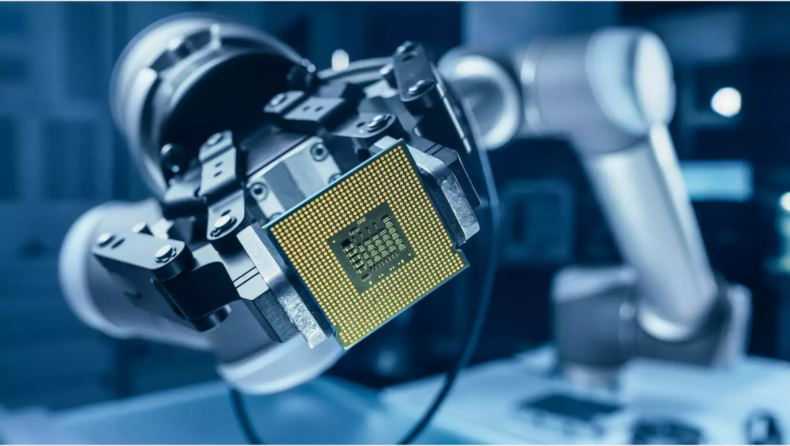Samsung is going to announce the manufacturing of the Samsung 3nm chip next week.

Highlights
- Samsung will likely start the 3nm chip manufacturing next week.
- Samsung will beat the TSMC in manufacturing 3nm chips.
- 3nm chips are faster and less power-hungry than current chips.
- Samsung will adopt the Gate-All-Around (GAA) technology for 3nm.
Samsung is going to start the 3nm chip manufacturing from the next week. They showcased the 3nm chip when US President Joe Biden visited the Samsung facility in South Korea.
The 3-nanometer chips are going to be built on the Gate-All-Around (GAA) technology. Samsung said that the 3nm chip will provide 30 % more performance while taking 45% less area than the current latest chips. It will also consume 50% less power so the battery life of the devices equipped with the chip will be longer with higher performance.
The GAA or Gate-All-Around design is the next step toward powerful and efficient chips. GAA provides the foundry to shrink transistors without hurting their ability to pass current. Current chipsets are using the FinFET design.
As shown below, the GAAFET design used in 3nm is the MBCET flavour. The image below shows the evolution of the silicon transistors.
![]()
Samsung is the largest memory chip manufacturing company in the world. Samsung will likely spend around $17 billion to build a foundry, especially for 3nm chips in Texas. The budget was $10 billion but it increased from last year.
TSMC, the world’s largest contract chip manufacturer is always been the competitor of Samsung. But this time Samsung will beat the TSMC for the manufacturing of 3nm chips.
TSMC will start the manufacturing of the 3-nanometer chip during the second half of the year.
TSMC has always been the leader in the foundry market with an almost 54% market grasp. Samsung is second with 17% in the first quarter of this year.
Samsung and TSMC have been competitors for years in bringing the latest and most advanced chips with less power consumption in the market.
Read More: – Samsung tipped to start the mass production of 3nm chips next week













